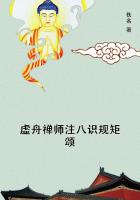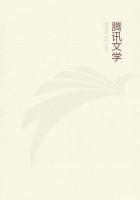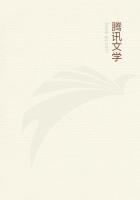7 Both Hellenism and Hebraism arise out of the wants of human nature, and address themselves to satisfying those wants. But their methods are so different, they lay stress on such different points, and call into being by their respective disciplines such different activities, that the face which human nature presents when it passes from the hands of one of them to those of the other, is no longer the same. To get rid of one's ignorance, to see things as they are, and by seeing them as they are to see them in their beauty, is the simple and attractive ideal which Hellenism holds out before human nature; and from the simplicity and charm of this ideal, Hellenism, and human life in the hands of Hellenism, is invested with a kind of aërial ease, clearness, and radiancy; they are full of what we call sweetness and light. Difficulties are kept out of view, and the beauty and rationalness of the ideal have all our thoughts.
'The best man is he who most tries to perfect himself, and the happiest man is he who most feels that he is perfecting himself,'--this account of the matter by Socrates, the true Socrates of the Memorabilia, has something so simple, spontaneous, and unsophisticated about it, that it seems to fill us with clearness and hope when we hear it. But there is a saying which I have heard attributed to Mr. Carlyle about Socrates,--a very happy saying, whether it is really Mr. Carlyle's or not,--which excellently marks the essential point in which Hebraism differs from Hellenism. 'Socrates,' this saying goes, 'is terribly at ease in Zion .' Hebraism,--and here is the source of its wonderful strength,--has always been severely pre-occupied with an awful sense of the impossibility of being at ease in Zion; of the difficulties which oppose themselves to man's pursuit or attainment of that perfection of which Socrates talks so hopefully, and, as from this point of view one might almost say, so glibly. It is all very well to talk of getting rid of one's ignorance, of seeing things in their reality, seeing them in their beauty; but how is this to be done when there is something which thwarts and spoils all our efforts?
8 This something is sin; and the space which sin fills in Hebraism, as compared with Hellenism, is indeed prodigious.
This obstacle to perfection fills the whole scene, and perfection appears remote and rising away from earth, in the background. Under the name of sin, the difficulties of knowing oneself and conquering oneself which impede man's passage to perfection, become, for Hebraism, a positive, active entity hostile to man, a mysterious power which I heard Dr. Pusey the other day, in one of his impressive sermons, compare to a hideous hunchback seated on our shoulders, and which it is the main business of our lives to hate and oppose. The discipline of the Old Testament may be summed up as a discipline teaching us to abhor and flee from sin; the discipline of the New Testament, as a discipline teaching us to die to it. As Hellenism speaks of thinking clearly, seeing things in their essence and beauty, as a grand and precious feat for man to achieve, so Hebraism speaks of becoming conscious of sin, of awakening to a sense of sin, as a feat of this kind. It is obvious to what wide divergence these differing tendencies, actively followed, must lead. As one passes and repasses from Hellenism to Hebraism, from Plato to St. Paul, one feels inclined to rub one's eyes and ask oneself whether man is indeed a gentle and simple being, showing the traces of a noble and divine nature; or an unhappy chained captive, labouring with groanings that cannot be uttered to free himself from the body of this death.
9 Apparently it was the Hellenic conception of human nature which was unsound, for the world could not live by it. Absolutely to call it unsound, however, is to fall into the common error of its Hebraising enemies; but it was unsound at that particular moment of man's development, it was premature. The indispensable basis of conduct and self-control, the platform upon which alone the perfection aimed at by Greece can come into bloom, was not to be reached by our race so easily; centuries of probation and discipline were needed to bring us to it. Therefore the bright promise of Hellenism faded, and Hebraism ruled the world. Then was seen that astonishing spectacle, so well marked by the often quoted words of the prophet Zechariah, when men of all languages and nations took hold of the skirt of him that was a Jew, saying:--' We will go with you, for we have heard that God is with you .' And the Hebraism which thus received and ruled a world all gone out of the way and altogether become unprofitable, was, and could not but be, the later, the more spiritual, the more attractive development of Hebraism. It was Christianity; that is to say, Hebraism aiming at self-conquest and rescue from the thrall of vile affections, not by obedience to the letter of a law, but by conformity to the image of a self-sacrificing example.















